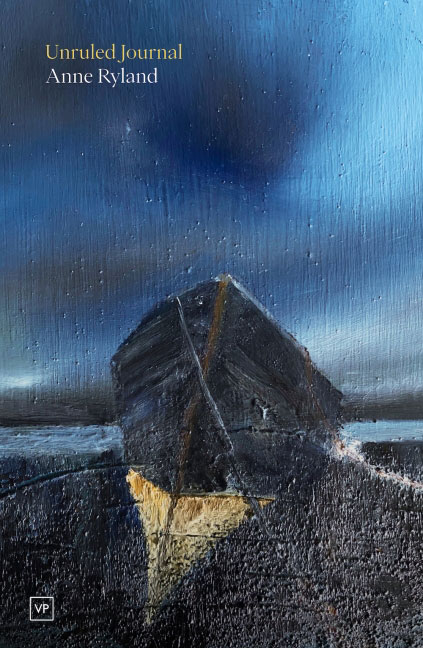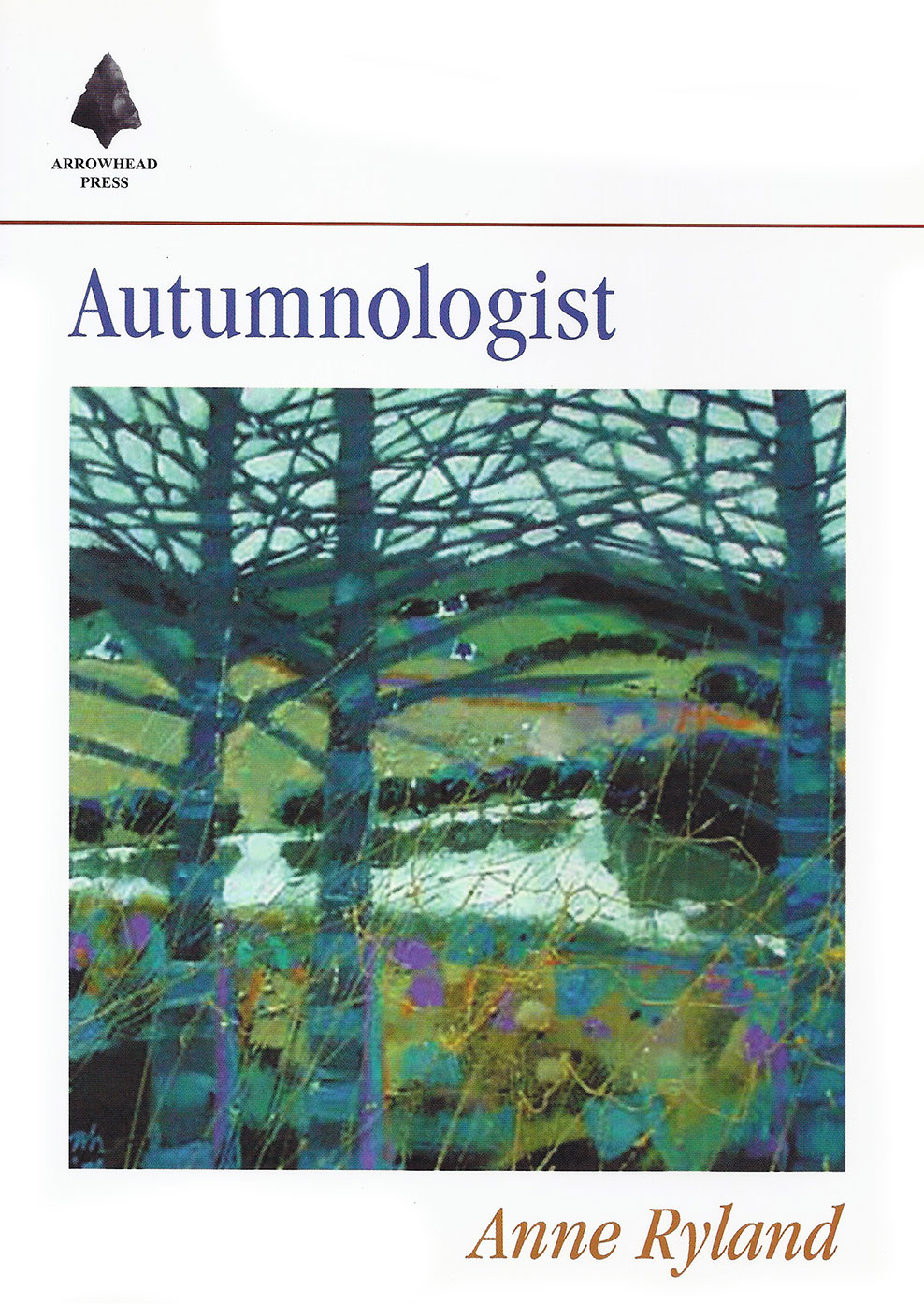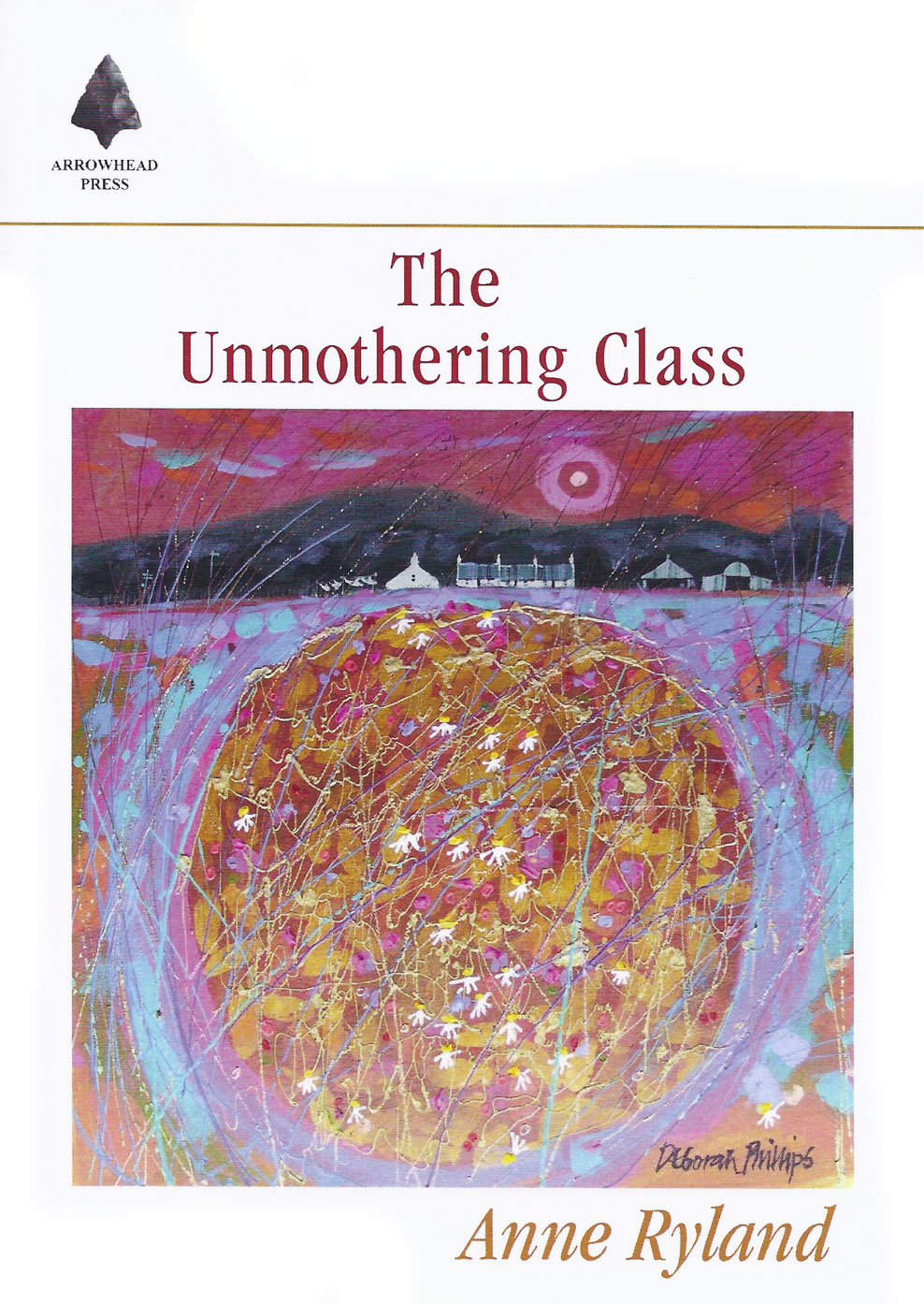Books
Unruled Journal
Valley Press, 2021
‘There is a fierce and unpredictable momentum to Unruled Journal that sweeps you along, marvelling at Anne Ryland’s inventiveness, range and linguistic panache. Her voice is generous and idiosyncratic, often mischievously so. There are also deeply affecting poems (including excellent versions of German and Polish originals) haunted by history, particularly 20th century Europe’s tragic inheritance. Gloriously, at the end of the collection, a newfound love of running offers release and redemption, captured in poems of such exuberance and transformative energy you feel you are also running through the border, joining “the formation of those who know where to go and how and why.” ‘
Linda France
‘This is a richly integrated new collection from Anne Ryland, full of subtle inter-weavings. I’m particularly struck by how the themes echo each other in an unforced way throughout; those of home, of borders, of identity, of personal and wider history, and also the theme of language itself and the boundaries it can break. The poems are unusually varied in tone, moving with ease through the earthy, the poignant, the humorous and the unsettling. Prose poems are full of vitality and versions of the German-born poet Hilde Domin also contribute strikingly to the whole. Unruled Journal is deeply rewarding, far-reaching and humane.’
Moniza Alvi
Cover painting: Crystal Waters, Island of Luing, Scotland
© Gill Knight 2021
Autumnologist
Arrowhead Press, 2006
Shortlisted for The Forward Prize for Best First Collection 2006
Moniza Alvi
Pascale Petit
© Deborah Phillips 2006
The Unmothering Class
Arrowhead Press, 2011
Linda France
© Deborah Phillips 2011
From Reviews of Unruled Journal
‘This is a third collection, assured, wide-ranging, whose themes work subtly together to deepen and expand its concerns. I was struck by Ryland’s ability to evoke quite desperate situations (such as disability, ill health, death of parents) with a deceptive lightness and grace: grief and loss are met clear-sightedly, even made beautiful. I love how Anne Ryland’s voice can span ranges of feeling in a single poem, embracing gravity along with deliciously strange wryness … There is a lot of joy in Unruled Journal. I loved the poems which celebrate a return in later life to the freedom and speed of running and which take the collection off into a heady new direction … Ryland is an extraordinarily gifted poet who should be much better known. I recommend this book highly.’
Pippa Little, The High Window
Read the full review
‘Unruled Journal is rich with superbly crafted poems about family, real and imagined, about women, about how the way we live inside language shapes and anchors our experience … Poems adapted from German and Polish originals – Hilde Domin, Leon Stroiński – keep the canvas broad, Ryland’s sensibility inseparable from our European heritage and history, the overall sweep of Unruled Journal deeply personal yet always aware of how our destinies interface with wider forces, inner and outer. This is a magnificent collection, culminating in some triumphant poems which celebrate the freedom of the body running, though language and play are never far away.’
Rosie Jackson, Acumen
‘These are poems that flit between the tangible and the enigmatic, the way a body is caught between flesh and absence, the way language is too … In these frank and confessional poems, the “I” is certainly not censored. Ryland’s voice is generous and intimate, offering up moments of personal insight for the reader … The final poems here spill out exuberantly across the page. Ryland takes us by the hand and pulls us, gasping, out into “May sleet and June thunder” along the banks of the “quiet Tweed”, running “with water and mudflats, with North Sea and estuary, drawing towards the river’s source” (Running, I become) – all our mortal senses lit up.’
Sophie Thomas, Magma Poetry
Read the full review
‘The way that Ryland uses language (not only English but German and Polish too), and the sounds we make, the words we use, with all their local colour like haar, hinny, mardy, nither, many of them native to the north-east English coast where she lives – lock the poems into their landscape and communicate not only a meaning but the pleasure that the poet feels in using them … The pleasure of bones, breath, movement is a constant theme in the book. It is also very hard-won, against the paralysis of physical wasting and grief … A book of personal wisdom, physicality and delight.’
Chris Beckett, Butcher’s Dog
Read the full review
‘The book is stamped with a gently humorous self-portrayal and something of a stoical, unrepining philosophy of life. The ‘passionate’ poet of conviction who also comes to light here forms a contrast, but the more searing aspects of Ryland’s vision are somehow reinforced by her overall scrupulousness and quietness of tone … We’re with her on what proves to be an adventure. The adventure is to find that an apparently ‘quiet’ poet has so much originality, depth and force. Committed (as we discern) to tolerance and compassion, and highly aware of these qualities in others, she unearths the mystery and (sometimes) agony of being alive.’
Dilys Wood, Artemis
‘Unruled Journal has beautifully crafted, eclectic poems that skate lightly between prose and poetry; present and past; Essex, Northumbria and beyond. As I read them, I had the image of a water strider on the surface of a pond, flitting from place to place, but with emergent direction … The poems are often affectionate and gently humorous, especially those related to family, but there is a mischievous edge to some of them, and in one case a devastating last verse.’
Peter Stewart, The Frogmore Papers
From Reviews of Autumnologist
Gail Ashton, Envoi
Paul Batchelor, Acknowledged Land
Gerard Rochford, Northwords Now
Belinda Cooke, Acumen
Joan McGavin, Second Light Newsletter
From Reviews of The Unmothering Class
Julian Colton, The Eildon Tree
Chris Beckett, London Grip
Linda Black, Long Poem Magazine
Mandy Haggith, Northwords Now



